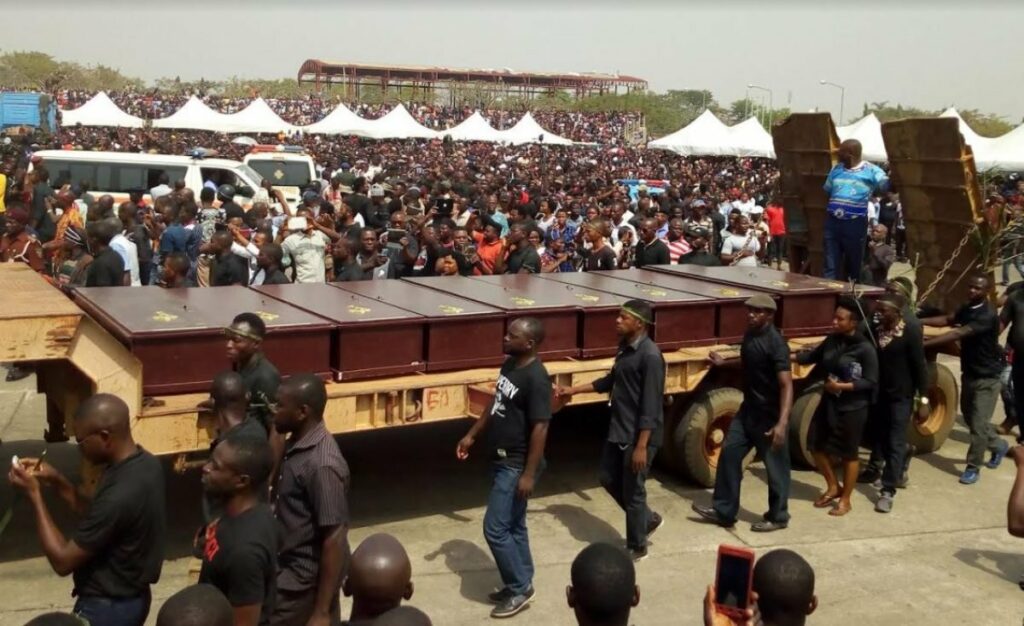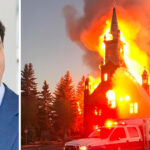Blog Post
The Slow-Motion Genocide of Nigeria’s Christians
By Jonathon Van Maren
At 3 a.m. on the morning of Sunday, May 30, the Fulani attack began. Wielding guns and machetes, the attackers swept into the villages of Ndobashi and Ekpufu, with the violence soon spreading to several neighboring Izi villages in Nigeria’s Benue State. Militants murdered men, women, and children without mercy. Some families—parents and children—were completely wiped out. Pregnant women were not spared. Villagers fled their homes and took refuge in the bush, returning to find burned homes and charred corpses.
“Muslims burned many houses, more than 200 of them in a place called Nwori market,” wrote Rev. Sosthenes Obo after the attack. “They hacked almost 54 persons to death in that one village of Ndobashi Iseke (situated in Ado Local Government area of Benue State). They burned many houses inside the village to ashes and properties worth billions of naira [the Nigerian currency], churches, church generators, seats, Bibles, and song books. They thought they’d killed a Methodist pastor in the same village after they had dealt him several machete cuts, but God prevented his death with the help of medical doctors. They looted handsets, power banks, chargers, laptops, clothes, and many other things.”
The villagers were targeted because they were Christians—both Ndobashi and Ekpufu are home to Nigerian Reformed churches. Miraculously, both Reformed pastors survived the assault. Rev. Obo had just finished preparing for the morning church services and fled with his wife through a passageway in their house. She collapsed during their flight and began to cry out “Jesus, Jesus!” when the attackers overtook her. Strangely, the persecutors let her go. In the days that followed, several such stories surfaced—Christian victims calling on Jesus, and their attackers recoiling and allowing them to survive.
Rev. Obo and his wife escaped with their lives, but their house was looted. A purse, special reading glasses, clothing, large amounts of money, and other items were stolen; twenty-two bags of rice were burned. Video footage taken just after the attack shows a village utterly destroyed, with houses still smoldering and survivors walking about in a daze, assessing the damage, wearing whatever clothes they’d managed to pull on before they fled.
Between 117 and 136 people were killed in a single day. It was yet another attack in what long-time observers of violence against Christians in Nigeria are calling new heights of jihadist violence. Nearly half of Nigeria’s population identifies as Christian (over 95 million people out of 206 million). But since 2015, well over 12,000 Christians have been killed—with many more being wounded, forced from their homes, or simply vanishing entirely. Kidnapped women and girls are often forced into “marriages” with Muslim militants. Violence has driven thousands of Christians into internally displaced persons (IDP) camps, with invaders occupying their ancestral homes. Perpetrators of these crimes are almost never punished, and persecution occurs with near impunity.
Some have begun to ask the question: Is a genocide unfolding in Nigeria?
READ THE REST OF THIS STORY AT THE EUROPEAN CONSERVATIVE








